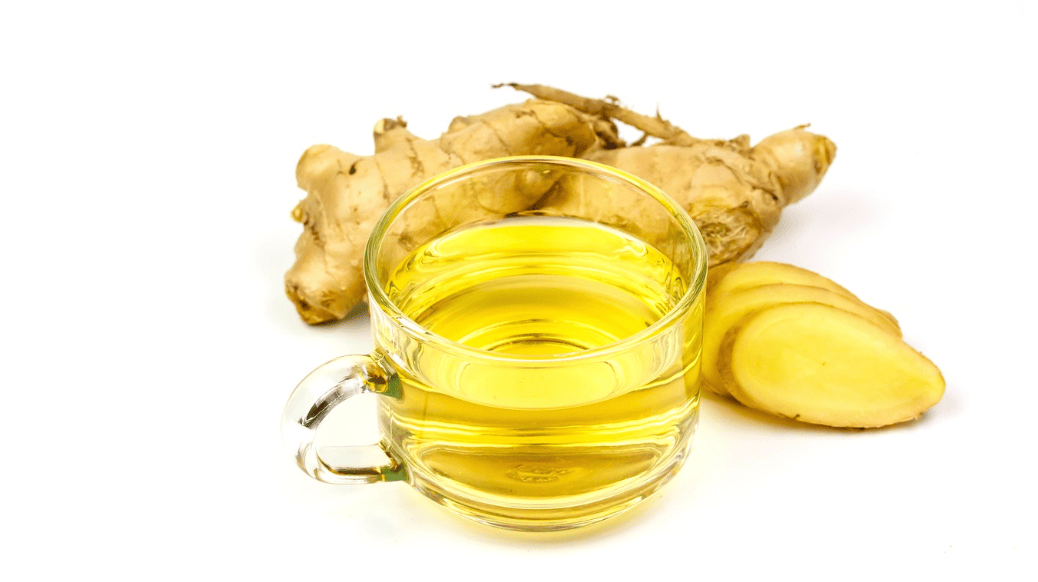Ginger ale is a popular beverage that has been enjoyed for centuries due to its unique taste and potential health benefits. This carbonated drink is made from ginger root, sugar, and water, and is often consumed as a refreshing beverage or as a remedy for various ailments.
In recent years, ginger ale has gained popularity as a natural remedy for nausea, inflammation, and digestive issues. This article will explore the top ginger ale benefits, including its anti-emetic and anti-inflammatory effects, potential relief for pregnant women and those with IBS, and the difference between ginger beer and ginger ale.
We will also caution readers about the high sugar content of some commercial ginger ale brands and suggest brewing ginger ale naturally for more nutrients. By the end of this article, readers will have a better understanding of the potential health benefits of ginger ale and how to incorporate it into their diet for optimal health.
Key Takeaways
- Ginger ale has many potential health benefits, including anti-emetic and anti-inflammatory effects.
- It can provide relief for digestive disorders like IBS and can reduce bloating and gas.
- Brewing ginger ale naturally at home can provide a greater range of nutrients and natural remedies.
- While ginger ale can be beneficial, it should not be used as a sole treatment for any medical condition and should be consumed in moderation.
Definition and Origin
The current subtopic of definition and origin of ginger ale can be discussed in the context of pre-existing knowledge, which includes an understanding that ginger ale is a non-alcoholic beverage that is relatively low in calories, contains nutrients with potential health benefits, and differs from ginger beer in its composition.
Ginger ale is made by fermenting ginger, sugar, and water, and adding carbonation. This process gives ginger ale its signature fizz and flavor, which can vary depending on the type of ginger used and the additional ingredients added.
Ginger ale has cultural significance in many countries, including Canada, where it is commonly consumed as a mixer with alcoholic beverages, and the United States, where it is often used as a remedy for upset stomachs.
In addition to its flavor and cultural importance, ginger ale has been found to have anti-inflammatory and anti-emetic effects, making it a potential natural remedy for a variety of ailments.
Nutrients and Health Benefits

Ginger ale is known to contain nutrients that contribute to various potential health benefits. For instance, a 12-ounce serving of ginger ale can provide up to 10% of the recommended daily intake of vitamin C.
Additionally, ginger ale has anti-inflammatory properties that can help reduce inflammation in the body. This can be particularly helpful for individuals with chronic conditions such as arthritis and asthma. Ginger ale also contains gingerols and shogaols, which are compounds that have been shown to have anti-nausea and anti-vomiting effects. This makes ginger ale an ideal beverage for individuals experiencing motion sickness or nausea.
Furthermore, ginger ale has been linked to digestive health. Gingerols and shogaols, the same compounds that provide anti-nausea benefits, can also help stimulate the digestive system and reduce bloating and gas. Additionally, ginger ale can help alleviate symptoms of gastrointestinal distress such as acid reflux, indigestion, and stomach cramps. Ginger ale has also been known to provide relief for individuals with irritable bowel syndrome (IBS) and other digestive disorders.
However, it is important to note that ginger ale should not be used as a sole treatment for any medical condition and should be consumed in moderation.
Brewing and Natural Remedies
Brewing ginger ale naturally at home may provide individuals with a greater range of nutrients and natural remedies. Natural fermentation is a process that allows for the growth of beneficial bacteria and yeasts, which can aid in digestion and boost immunity. When ginger ale is brewed naturally, it often contains more of these beneficial bacteria and yeasts, as well as a greater concentration of ginger and other herbs or spices that may have medicinal properties.
There are many ginger ale recipes available online for those interested in brewing their own. These recipes often call for natural ingredients, such as fresh ginger root, sugar, and water, and may include additional herbs or spices like cinnamon or cloves. By brewing ginger ale at home, individuals can have greater control over the ingredients and sugar content, which is particularly important for those with diabetes or other health concerns.
Additionally, natural fermentation may provide a range of natural remedies and potential health benefits.
Frequently Asked Questions
What are some common brands of ginger ale?
There are countless options when it comes to ginger ale brands, with many popular options available worldwide.
Ironically, despite the abundance of choices, most ginger ale brands taste relatively similar due to the use of similar ingredients.
Some of the most well-known ginger ale brands include Schweppes, Canada Dry, and Seagram’s, which can be found in most grocery stores and supermarkets.
Other options include Reed’s, Vernors, and Blenheim, which are popular among ginger ale enthusiasts.
While there may be slight differences in taste, the overall experience of drinking ginger ale largely remains the same across various brands.
Can ginger ale be used as a natural remedy for motion sickness?
Ginger ale is often used as a natural remedy for motion sickness due to its anti-emetic and anti-inflammatory effects. However, while there are some anecdotal reports of its effectiveness, there is limited scientific evidence to support this claim.
There are also alternative natural remedies, such as ginger supplements or teas, that may be more effective. Prevention tips, such as avoiding large meals before travel and sitting in a well-ventilated area, can also help alleviate symptoms.
It is important to note that dosage recommendations vary and should be discussed with a healthcare provider, especially for individuals with medical conditions or taking medications.
Overall, while ginger ale may provide some relief for motion sickness, more research is needed to determine its effectiveness and potential risks.
Is there a difference in the health benefits between ginger ale made from fresh ginger versus ginger ale made from ginger extract?
Fresh ginger and ginger extract are two different forms of ginger that are commonly used in making ginger ale. Fresh ginger is the root of the ginger plant, while ginger extract is a concentrated form of the ginger root.
When it comes to the nutritional comparison between fresh ginger and ginger extract, fresh ginger contains more fiber and certain vitamins and minerals than ginger extract. However, ginger extract may contain higher amounts of certain active compounds, such as gingerols and shogaols, which have been linked to potential health benefits.
Ultimately, the choice between fresh ginger and ginger extract may depend on personal preference and the specific health benefits one is seeking from ginger ale. Further research is needed to fully understand the differences in health benefits between ginger ale made from fresh ginger versus ginger ale made from ginger extract.
Are there any potential side effects or risks associated with consuming ginger ale?
Ginger ale is generally considered safe for consumption, but there are potential side effects and risks associated with its use.
One of the main concerns with ginger ale is its high sugar content, which can be problematic for people with diabetes or those watching their sugar intake.
Additionally, consuming large amounts of ginger ale may lead to digestive issues such as bloating, gas, and stomach upset.
It is important to note that ginger ale should not be used as a substitute for medical treatment, and individuals should consult with their healthcare provider before using ginger ale for medicinal purposes.
Precautions should also be taken when consuming ginger ale alongside medications, as it may interact with certain drugs.
The recommended dosage of ginger ale varies depending on the individual and their specific health needs.
Overall, while ginger ale offers potential health benefits, it is important to consume it in moderation and with caution.
How does the carbonation in ginger ale affect its potential health benefits?
Carbonation effects in ginger ale may impact its potential health benefits.
Carbonation can cause bloating and discomfort, leading to potential negative effects on digestive health.
However, some studies suggest that carbonation may enhance the absorption of certain nutrients, such as gingerol, found in ginger ale.
Gingerol has been found to possess anti-inflammatory and anti-nausea properties.
Additionally, the effervescence of carbonated ginger ale may provide relief for those with upset stomachs.
Overall, the effects of carbonation on the potential health benefits of ginger ale require further research, but it is possible that it may both enhance and hinder its effectiveness.

